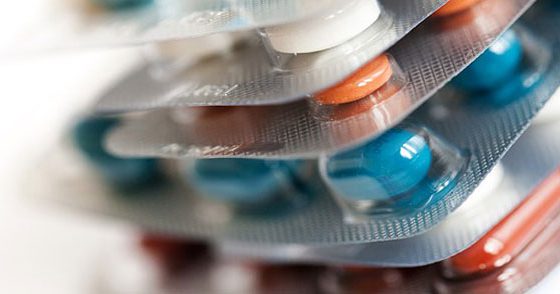With classical therapy of acid inhibition, residual symptoms of gastroesophageal reflux disease sometimes persist. Renowned speakers from medicine and pharmacy discussed the topic at a round table in Zurich. A new therapeutic approach for self-medication was also presented, which focuses on reflux. HAUSARZT PRAXIS spoke with Prof. Dr. med. Peter Bauerfeind, Senior Physician, Clinic for Gastroenterology and Hepatology at the University Hospital Zurich.
Prof. Bauerfeind, stomach burn and reflux are domains of self-medication – especially when they occur sporadically. Is this area gaining in importance?
Prof. Bauerfeind: Self-medication is generally gaining in importance. Many medical problems are no longer even raised by patients with their doctors. With these seemingly insignificant symptoms, they go to the pharmacy for advice. Even sufferers with occasional reflux symptoms usually turn primarily to pharmacists in search of an uncomplicated solution. We see these patients in many cases much later, after they have already spent years trying to manage the symptoms themselves.
The field of reflux is also gaining importance in general, as the prevalence of symptoms is increasing. In particular, the widespread prevalence of obesity as a major cause of reflux plays an important role. It is important that the patient does not self-medicate for a long period of time. If taking antacids or acid inhibitors is repeatedly necessary or does not work well, he should see a doctor.
Where do we stand in terms of gastric distress/reflux management, and how far do we get with old-fashioned self-medication drugs?
Proton pump inhibitors (PPI) have been shown to be very effective for severe cases that we see as physicians. They can very well improve esophagitis caused by severe acid reflux. However, there are patients who still complain of persistent reflux symptoms even when taking PPIs. In these cases, the dose is often doubled, but even here, residual acid activity may remain, sufficient to cause symptoms in some people. Antacids, on the other hand, neutralize acid that has already risen into the esophagus. They support the buffering effect of saliva. The danger with antacids is that the stomach may react with a rebound in acid production.
Low-dose antacids and acid blockers are available for self-medication without a prescription. The remedies are often sufficient for occasional and mild reflux.
Gaviscon®, which has been available in other countries for a long time, has recently become available in this country as well. The drug features a new therapeutic principle – what is the mechanism of action?
Gaviscon appears to create a reflux barrier in the stomach that prevents acid from rising into the esophagus purely mechanically. The preparation contains an alginate and bicarbonate. The alginate forms a kind of raft in the stomach, which is swollen by the carbon dioxide produced from the bicarbonate in contact with the stomach acid. In this way, it prevents the acid from rising when there is increased pressure from the stomach to the lower sphincter. Incidentally, there are also more recent study data demonstrating clinical efficacy: The rising of the acid seems to be prevented mechanically.
In cases of residual symptomatology under a PPI, a combination of PPI and gaviscon may be considered because they are different, independent modes of action that complement each other very well. Due to the purely mechanical effects of Gaviscon, no interactions are to be feared here.
After a confirmed diagnosis of esophagitis, a PPI is primarily indicated. As a supplement, the PPI can be combined with Gaviscon right from the start, which then also helps to phase out the PPI at some point. For example, studies have shown that combination with gaviscon improves PPI tapering.
What is meant by an “acid pocket”?
Food buffers gastric acid and causes neutralization of gastric juice. According to the latest findings, however, this buffering only occurs in the lower part of the stomach. The acid in the area of the fundus above the pulp, on the other hand, is not buffered and thus forms an acid pocket on it. Since acid – unlike food pulp – has a very fluid consistency, it can rise relatively easily into the esophagus when reflux-promoting situations occur, i.e., after ingestion of a meal, bending forward, coughing, and/or being overweight.
What other measures do you recommend for patients with reflux?
In cases of known reflux, I recommend small meals spread throughout the day to avoid too much pressure build-up in the stomach. In addition, a reduction of any excess weight is recommended to reduce symptoms. It is also important that those affected do not lie down immediately after eating, so rather eat early and light at night.
Interview: Sonia Fröhlich
HAUSARZT PRAXIS 2014; 9(1): 8-9











